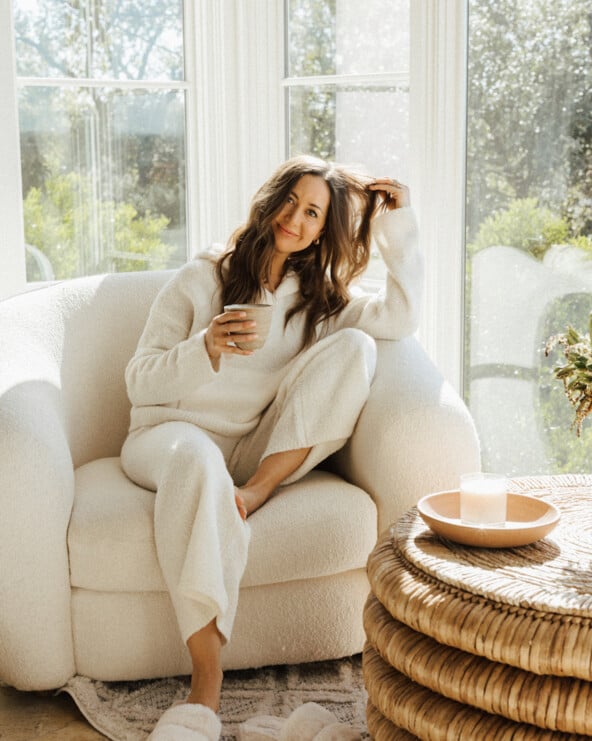I’ve been telling myself that “I really need to start composting” for a long time. For years, actually. I’m not sure why it took me so long to get started — for some reason, I felt intimidated by it all, and thought that composting would pose a huge lifestyle change. Turns out, it’s one of the easiest things you can do in your home to live a whole lot greener. And once you get into the habit of being mindful about what you send to the landfill, it’s almost impossible to not make thoughtful decisions about your waste.
Today, we’ve partnered with Seventh Generation to really get to the nitty gritty of composting: How do you do it? Why should you care? What if you don’t have a yard? And by turning to Austin’s own Break it Down, we were able to get all those tough questions answered. Click through for all the details, and to see how composting helped me whip up an entire brunch while creating zero waste.

First thing’s first: what’s the benefit of composting?
Melanie: The benefits of composting depend on where your values lie. If you’re concerned for the environment, then you’ll be happy to know that reducing food to landfills reduces the release of methane into the atmosphere. If you care about health and nutrition, then the value of compost lies in the production of nutrient dense foods. If you’re the owner of a restaurant struggling to deal with a smelly dumpster, composting can greatly reduce odor and nuisance problems. Or as a gardener you might appreciate “closing the loop” by using the food that you eat to grow more food that you eat.

I’ve always heard that when it comes to composting, “if it grows, it goes.” In general, what can go into the bin?
- meat
- bones
- dairy products
- breads
- grains and pastas
- fruits and veggies
- cut flowers
- soiled paper such as Seventh Generation paper towels
- coffee filters

Wow! And to think that I’ve been sending all those things straight to a landfill… I have to admit I’m feeling a bit shameful.
M: Composting is important because it forces us to stop and think about the waste that we are sending to landfills. In my mind, all “waste” should go to its highest value end use. Once an item goes to the landfill, that’s it. As we’ve seen with recycling, a cardboard box can go on and on and on, and it’s the same with food waste. Rather than depleting soil, we can put the food waste back into the soil to actually replenish it. Socially, environmentally and economically it’s a much higher value end-use than the landfill.

For those of us without a backyard or a garden, how can we compost effectively?
M: An air-tight bucket is all you need – then you can dump the material off-site once or twice a week. Simply take it to a local community garden, a friend with a yard, a composting kiosk at your local farmer’s market, or have a composting pick-up service collect it.

What are some things that people often mistake as compostable, but actually aren’t?
M: Bottles, aluminum foil, and straws! The problem is people not paying attention to what they’re throwing in the compost bin. Home composting is great because it gets everyone in the habit of separating out wastes.
Compostable serviceware can create a lot of confusion as well – two to-go cups can look identical, but one is made from corn so it can be composted, and the other is a traditional plastic that can’t be composted. Many businesses pay extra for compostable to-go serviceware, and most of it ends up in the trash landfill, where it breaks down and releases methane. You have to read the fine print on the bottom of the cup to know the difference.

M: There is such a huge range of materials which can be composted. In a small residential compost pile, fruit and vegetable scraps are really is all that will work well. But at the commercial scale, virtually any food waste can be composted.
*pictured here: My adorable 1 Gallon copper composting bin. It has a filter in the lid that keeps my kitchen totally odorless, and it’s not a total eyesore on my countertop!

M: At Break it Down, we recently launched an apartment-composting program. Since we operate on a larger scale composting system we are able to take all food waste, so that could be another option for you, depending on where you live.

This post has been brought to you by Seventh Generation who create powerful plant-based solutions for your home & family. Check out our Living Green series for more ideas on living a clean, green life!




